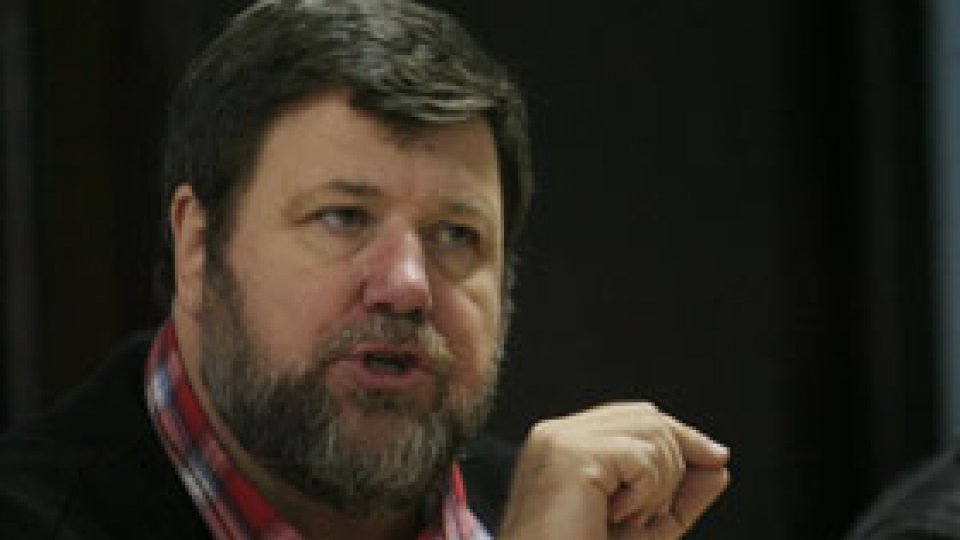Trade unions are requesting the amendment of the Social Dialogue
Trade union leaders believe that the Social Dialogue Law does not rightfully protect the interest of employees.

Articol de Roxana Dumitrescu, 03 Iulie 2012, 08:34
Employer associations are referring to this as ‘an attempt at dictatorship’ of the trade unions, accusing the government of taking the text to be modified directly from them.
Romanian trade unions want to amend the Social Dialogue Law, adopted one year ago.
The union leaders are of the opinion that this legislative act does not protect the interest of employees.
Moreover, at a news conference on Monday, the union leaders claimed that the employer associations who accused the unions last week of disrupting the national economy by amending Law 62 are irrelevant and only trying to prevent a real social dialogue.
The President of Cartel Alfa, Bogdan Hossu, underlines that at the moment only 36 per cent of Romanian workers are covered by a collective labour contract - considerably fewer compared to 98 per cent on 1 May 2011.
“If they go on implementing the current legislation, without amending it, collective contracts will practically become extinct, which, to my mind, is not normal, especially seeing how everyone’s aim, including these employer associations’, is to create social peace, dialogue and to actively engage in social dialogue.”
What I find unpleasant is that they don’t really want to achieve these goals, but, instead wish to eliminate trade unions and social dialogue structures from their own enterprises, which are generally small or medium sized enterprises”, Bodgan Hossu stated.
Trade union leaders are imputing the employer associations that they are, in fact, in favour of the Social Dialogue Law as it was adopted last year, that they do not wish for social peace and are only after personal gains.
Trade unions are accusing the government of stealing the amendment text of law from the unions themselves
On the other hand, the leaders of ten of the thirteen most important Romanian employer confederations are speaking of a dictatorial stance of the unions, accusing the government of having taken over the amendment text of the Social Dialogue Law from the trade unions themselves.
According to the vice president of the National Council of Small and Medium sized Private Enterprises of Romania, the respective text is in violation of three constitutional articles and several other international conventions.
Among the invoked inconsistencies are: prohibiting companies from being a member of more than one employer association at a time, compelling such companies to incur part of the expenditures for trade union activities or increasing the fines for not participating in collective negotiations.
Dragoş Mihalache, vice president of the General Union of Romanian Industrialists, has criticized the renewed inclusion of the fundamental right to strike into the content of collective labour contracts, on the grounds that it leads to economic imbalance.
“Putting the right to strike issue on the table has led the great Romanian trade union leaders to attempt to amend Law 62, which they are already doing. This measure means that the right to strike will not be an actual right, rendering the confederation’s presence on the social dialogue market virtually insignificant. All these attempts are harmful to our nation because a poor use of this right may bring the country to its knees.
“I’m not sure if anyone wishes this for our country, which has managed to come out of this difficult period still standing. I have publicly stated this hundreds of times – attempts are being made internally to destabilise Romania, to destroy our national security”, Dragoş Mihalache said.
While employer confederations have already sent an open letter to various state institutions and international decision-making bodies, by which they draw attention upon the violation of these rights and announce that they will attack the law through the Constitutional Court if the amended version is eventually adopted, the trade union federations are convinced that amending the law will be successful and will result in correcting a series of imbalances.
Translated by:
Cristina Baciu, MA Student, MTTLC, Bucharest University














